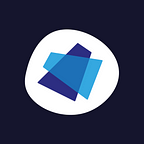Ghanaian University Embracing 21st Century Technology to Solve Challenges in Tertiary Education
Too often we talk about the challenges facing tertiary education in Africa and particularly in Ghana. We site problems such as lack of infrastructure to absorb the constantly increasing number of high school graduates. By 2020 we expect the number of high school graduates to grow by 140,000 thanks to the government’s free SHS policy.
In addition, the qualified teacher to student ratio is 1:217,000 and students have become more vocal on how crowded lecture halls water down their learning experience.
Moreover, universities are keen on ensuring quality of teaching and modules. This process is mostly paper based and incurs great costs in stationery and man hours that often go unanswered by students.
Solutions to theses challenges? One would easily say build more universities, train more teachers. Very noble ideas but by the time you factor in accreditation timelines and the duration of teacher training programmes, too many students will have gone without tertiary education.
One Ghanaian university has chosen a different approach. An approach that has adapted to the technology of our time. They have capitalised on the fast growing digisphere to open their doors to more students and provide them quality and education. They do this through blended and distance learning which has increased their student population in Ghana and beyond.
Accra Institute of Technology, uses a learning management and administrative support system that allows students to register for classes, receive notifications access, access course content and submit assignments.
Their students also have access to a plethora of current reading material via a e-library and can also access and compare module being taught at different universities globally.
In addition, they have a digital on the spot student evaluations of teaching and modules. All this while maintaining the crucial student-lecturer contact hours.
The solutions they have adopted solve the challenges mentioned at the beginning of the article.
In Ghana, Chalkboard Education’s application ensures course content distribution for blended learning, evaluation of teaching and learning and provides rich data for institutions accessible even offline.
With us, institutions can increase their student population and ensure quality while saving on the costs and man hours that come with physically expanding the campus.
As institutions endeavour to increase access and maintain quality, it is increasingly evident that they need to align themselves to the tools readily accessible to them to remain relevant.
